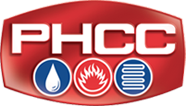Smart Home Technology & HVAC Systems
 Smart home technology, powered by the Internet of Things (IoT), has allowed for greater convenience and energy conservation over the last several years.
Smart home technology, powered by the Internet of Things (IoT), has allowed for greater convenience and energy conservation over the last several years.
Rather than treating each appliance and system as separate entities, smart home technology helps you control each from a single interface, monitor its performance and find ways to reduce energy consumption and carbon footprint.
Programmable Thermostats
Wireless, programmable thermostats, which have increased HVAC system efficiency, are just the tip of the iceberg when it comes to integrating heating and cooling operations with smart home technology.
In recent years, remote operation has allowed homeowners to turn their heating and cooling systems on and off while they’re away.
Built-in sensors have also transformed how HVAC systems get used, fueling the development of climate-controlled zoning, reducing the amount of electricity used, and observing patterns and conditions to intuitively make adjustments. These aspects:
- Ensure your cooling and heating systems only run as needed, saving you money long term.
- Prevent you from heating or cooling infrequently used rooms.
- Allow for different temperature preferences throughout your home.
- Continue to collect data based on your habits and home conditions, eliminating the number of adjustments in the future.
- Take note of environmental and weather factors, including humidity, to intuitively adjust operations.
The following are some of the smart home technologies that have helped advance HVAC systems.
Sensors
Today, more HVAC systems feature sensors. Digital thermostats include resistance temperature detectors to assess conditions and patterns to improve efficiency. Beyond this technology, there are:
- Pressure Sensors: Compressors, coolers, heat recovery systems, air volume controls and burner controls feature pressure sensors to monitor and improve air flow in relation to heating and cooling.
- Occupancy Sensors: Detect the presence of a person in a particular space to activate and control the temperature. They often work in conjunction with zoning technology.
- Indoor Air Quality Sensors: Detect the percentage of carbon in the air, indicating the degree of air circulation in a given space.
- VOC Sensors: Related to air quality, VOC sensors detect the presence of volatile organic compounds (VOCs), including combustible and toxic gases, in an indoor space.
Beyond temperature adjustments, sensors play an essential role in the maintenance process, especially with hard-to-see components like ducts:
- Sensors help identify HVAC system malfunctions and send the homeowner a notification, so you don’t have to troubleshoot.
- Sensors notify the homeowner whenever filters need to be replaced or the system needs routine maintenance, sending seasonal reminders.
- Data is provided about a system’s efficiency, which can point to defective parts or leaks within the ducts.
- Long term, the data helps your HVAC system last longer and reduces the incidence of breakdowns.
Zoning
At its core, zoning allows for greater temperature and condition variability in a home. Certain rooms remain cool while the temperature can be increased in others.
At the same time, zoning is integral to energy efficiency. With a single temperature set throughout a home, rarely used rooms are heated or cooled, consuming energy in the process.
Overlapping with advances in wireless thermostats and sensors, zoning streamlines your HVAC’s efficiency and may reduce energy bills by as much as 30 percent. At the same time, this approach improves everyone’s comfort in your home, eliminating fights over the thermostat.
Smart Vents
Smart vents go hand-in-hand with zoning. IoT technology has reached the point where, in relation to heating and cooling output, we can remotely open and close the vents in each room.
While this helps divert airflow to the rooms being used, one factor has to be considered: Closing off too many vents can lead to pressure buildup in your HVAC system, which may contribute to leaks. Should you decide to use smart vents, keep tabs on which ones are open and closed.
Interested in making your heating and cooling systems more efficient via smart home technology? Make an appointment with MJ Fahy & Sons to learn more about what we can do.




